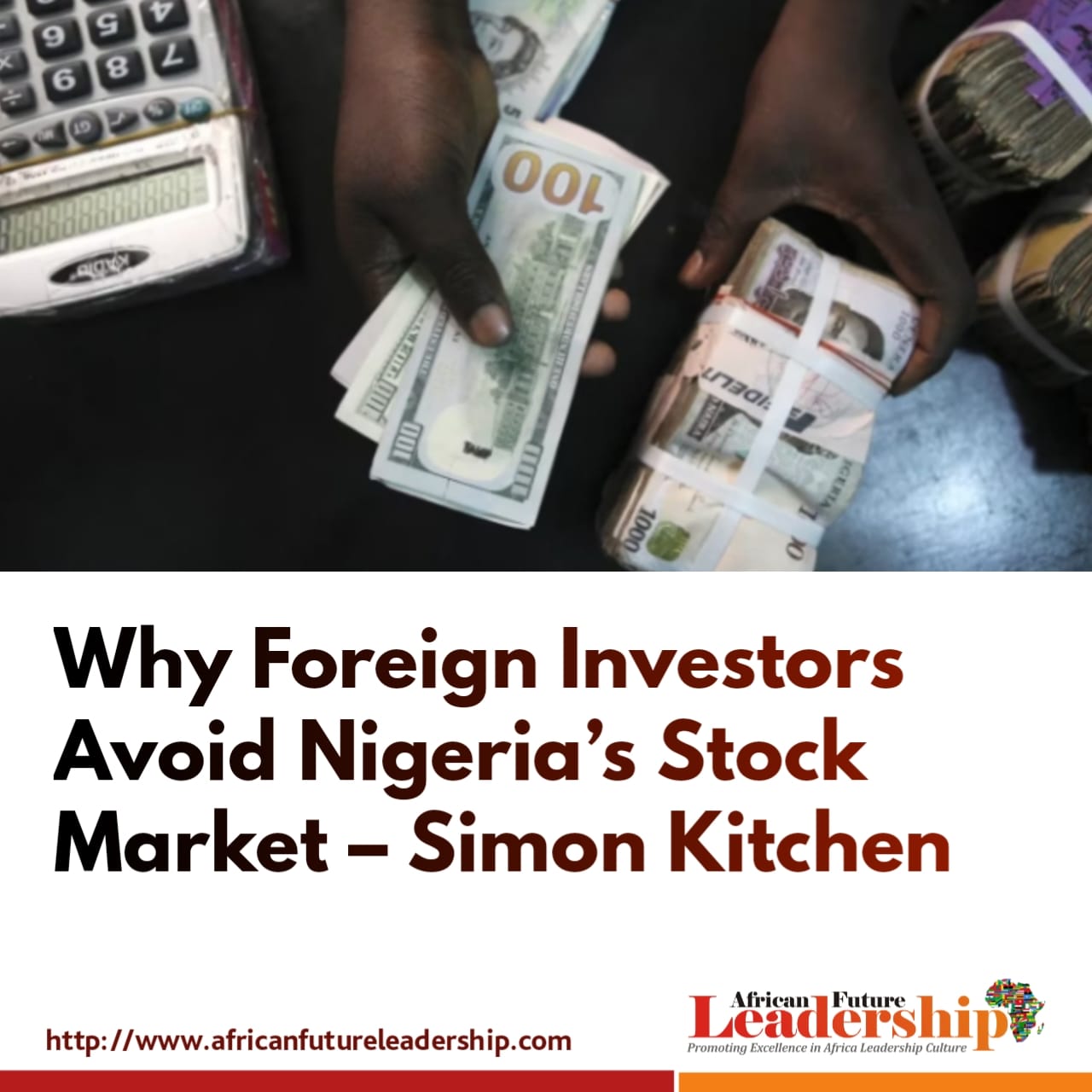By our Reporter
Authoritative facts have it that Experts familiar with economic issues have emphasized the need to fix FX issues in Nigeria and Kenya in order to attract foreign investors.
Head of Strategy, and Research at EFGs, Simon Kitchen, disclosed this during the briefing on Nigeria and Kenya’s FX and more.
Kitchen stated that both countries are missing out on a great deal of investment in the frontier market funds as foreign investors are not encouraged to invest in markets where it is difficult to get their money out of the country due to issues around FX.
He explained that the frontier market fund is directed to cater to frontier markets and smaller emerging markets which include; places like Vietnam and Morocco, Kazakhstan, Pakistan, Bangladesh as well as Kenya and Nigeria, adding that there’s been a strong inflow into these funds in the past few months including the recent $150 million which recently went into the funding.
READ MORE: Nigerian Central Bank Raises $225 Cash Withdrawal Limits
Kitchen said further that Kenya and Nigeria, due to the availability of cheap stocks in the markets, are in a better position to gain more from the fund but that isn’t happening.
In his words, “The problem is, Kenya and Nigeria are not getting any of this money as a result of the difficulty foreign investors face in getting their money out of these two markets. In Nigeria, this is a long standing problem. This by the fact that foreign exchange has been really scarce since 2020 and it wasn’t easy before then. Foreigners have just found it impossible to take money out of the Nigerian economy if they sell stocks in Nigeria. In Kenya as well, this has become a problem in 2022.
He pointed out that “Nigeria and Kenya together make up more than 10% of that frontier market index, and that means out of about $150 million that came in the past few weeks, $15 million should have gone into Nigeria but foreigners aren’t putting that money in. If you can’t get your money out, you’re not going to put money in. And so I think from a foreign investor’s point of view, it is absolutely critical that the authorities in these two countries fix the FX situation. ”
Again, Kitchen pointed out that Kenya’s FX issue is a more recent problem adding that the country, on a macro basis, has made some pretty important improvements in the past year as they have tried to tackle the issue of subsidies on fuel, increased tax revenues decently as well and that their debt situation compared to a lot of the peer markets
Thus in Nigeria, he said that the FX challenge is even more acute, attributing the issue to the legacy of several years of very unorthodox economic policies in the country.
He stated that, “There’s a potential breakthrough coming in 2023 because you have a change in political leadership with the election, and that could create the opportunity for a new government to come in and sort of draw a line under years of unorthodox political policies and take the right decisions by fixing the FX market and also putting the government finances on a more sustainable footing. If that happens then, you will see foreign money coming back into these countries.”
Unutilized pension funds: Kitchen also pointed out that both countries have large pension systems but these Systems don’t put enough of their money into stocks.
Also, in his view, “they really should, and the reason they should is that pension systems as the institution has the luxury of taking a very long-term view that we as individuals don’t often have.”
Therefore, he advised that there is a need to change incentives and regulators need to be part of this to force pension funds to really take a much longer-term view in countries like Nigeria, Kenya, and many others countries.
As he put it, “The regulators and pension fund managers are so worried about momentary loss that they don’t invest in the assets they should.”




